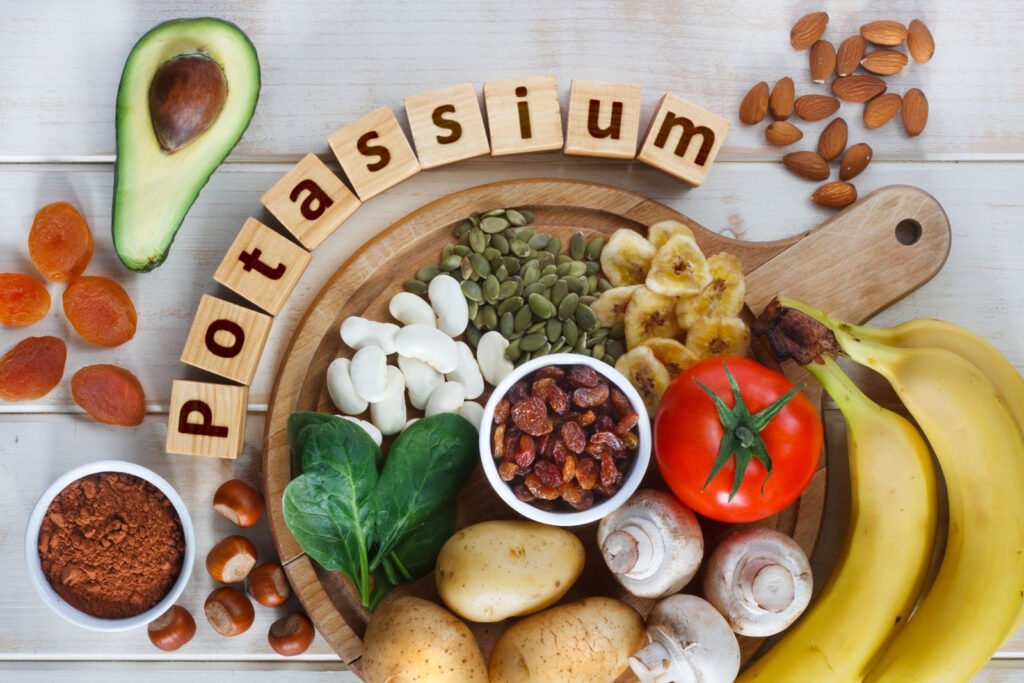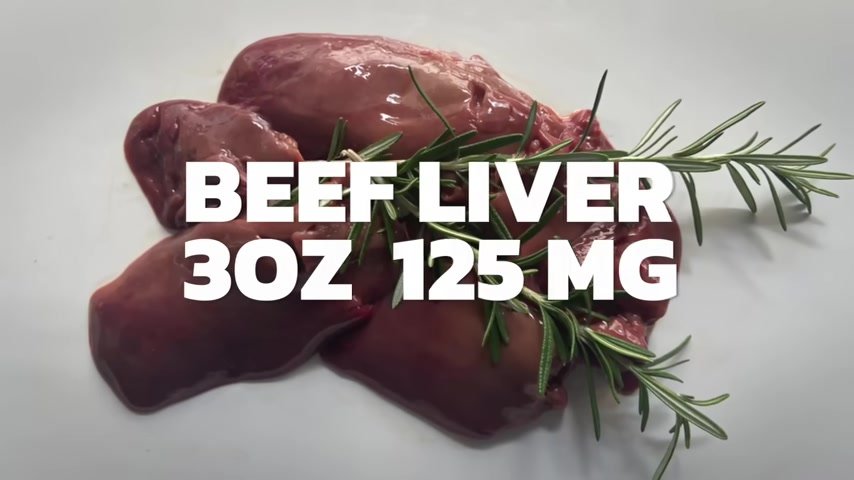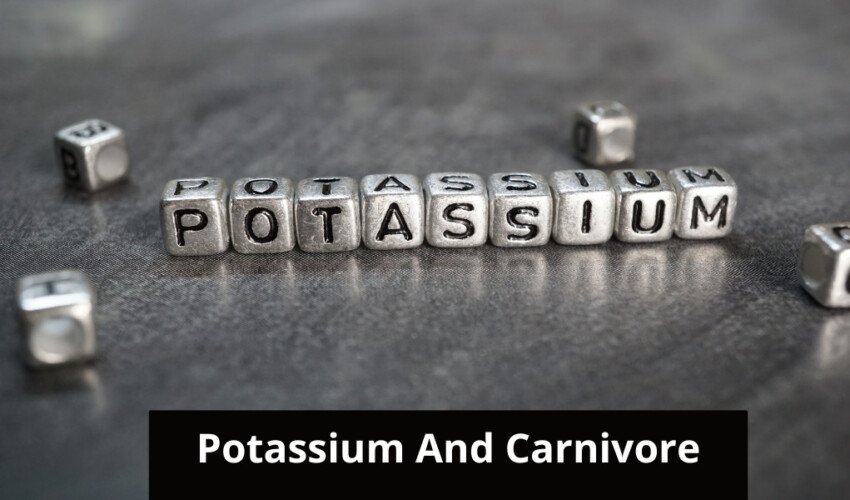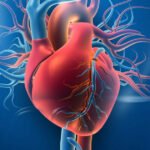Table of Contents
Learn how to meet your potassium needs on a carnivore diet. Discover animal-based sources of potassium and tips to maintain optimal health with Dr. Berg’s expert advice.
Potassium is a crucial mineral necessary for various bodily functions, including nerve function, muscle contraction, and fluid balance. While many people associate potassium with plant-based foods, it’s entirely possible to get enough potassium on a carnivore diet.
In this article, Dr. Berg explains how to meet your potassium needs through animal-based sources. Symptoms of high potassium (hyperkalemia) include diarrhea, while low potassium (hypokalemia) can lead to constipation and muscle cramps. Factors such as kidney disease, certain medications, and adrenal conditions can affect potassium levels in the body.
Contrary to popular belief, animal products like bone broth, beef, octopus, salmon, and eggs also provide significant amounts of potassium. Consuming a variety of these animal products on a carnivore diet can help you maintain optimal potassium levels and overall health.
Learn about the best animal-based sources of potassium and how to incorporate them into your diet to support your well-being.
What is potassium, and how does it work?

Can you really get enough potassium if you’re doing carnivore ?
Well , let’s go into it .
1st , I wanna explain a little bit about how potassium works .
Potassium is not the most abundant mineral in the body .
Calcium is because calcium is stored .
But potassium is the mineral that you need the most out of any nutrient as far as a daily amount .
You need , like , 47 100 milligrams a day .
That’s a lot .
So why do you need that much ?
Because potassium is involved in something called the sodium potassium pump , and that’s in all of your cells .
It’s a pump that allows the contraction and relaxation of your nerves , not to mention the fluid inside and outside the cells .
Let’s talk about if you have too much potassium or too little potassium .
So too much potassium , the word for that is called hyperkalemia , because it’s too much potassium .

Not enough potassium , that’s called hypokalemia .
So what you need to know about both is that it’s very rare to have any symptoms even if you have low or high , unless it’s like extreme .
Most of the potassium , like 98% of it , is inside the cell .
There’s a lot of factors that can , make it even lower in the blood even though they’re measuring only 2% of it .
Symptoms of low potassium vs. high potassium
What are the symptoms for low potassium versus high ?
If you have high potassium , you can have diarrhea .
Low potassium , constipation .
So with high potassium , you have more muscle pain or muscle numbness .

But with low potassium , you have more muscle cramps and just an overall tiredness .
So you can imagine , like , especially if you exercise , like , you need potassium to allow things to work .
It’s gonna help your performance .
And if you don’t have enough , you can feel kinda weak and kinda tired .
And just as a side note , 1 of the causes of low potassium is low magnesium because they work so closely together .
| Category | Details |
|---|---|
| Role of Potassium | Essential for muscle function, nerve transmission, and maintaining fluid and electrolyte balance. |
| Symptoms of Potassium Deficiency | Muscle cramps, weakness, fatigue, constipation, irregular heartbeats, tingling or numbness. |
| Potassium-Rich Animal Foods | – Organ Meats (Liver, Kidney) – Fish (Salmon, Halibut, Cod, Tuna) – Shellfish – Bone Broth |
| Health Effects of Deficiency | Increased risk of hypertension and cardiovascular diseases, muscle paralysis, poor digestion, fatigue, and weakness. |
| Dr. Berg’s Recommendations | Increase intake of potassium-rich animal foods, consider supplements if necessary, follow a balanced diet. |
| Additional Sources | Include other animal products like meat (beef, pork, chicken) and dairy (milk, yogurt, cheese) for moderate potassium intake. |
| Effects of Low Potassium | Muscle weakness, cramps, constipation, irregular heartbeats, and severe cases can lead to paralysis and respiratory failure. |
| Effects of High Potassium | Nausea, fatigue, muscle weakness, and in severe cases, it can lead to cardiac arrest. |
| Importance of Monitoring Levels | Regular check-ups with healthcare providers, monitoring for signs of deficiency, maintaining balanced diet for overall health. |
What causes high potassium levels?
So what would cause a high level of potassium ?

Well , mainly it’s gonna be kidney disease .
It’s because the kidney can’t get rid of the potassium , and so it just builds up in the body .
It’s extremely rare to develop too much potassium in the blood from dietary potassium or even taking supplements of certain blood pressure medications .
And it can also be a side effect of an adrenal condition called Addison’s , which is a condition where your adrenals just aren’t working .
And you have this hormonal problem where you’re retaining more potassium and you’re losing a ton of salt .
This is why people with Addison’s disease need to take a lot of salt .
So in other words , the more potassium you have , the less ratios of sodium you’re going to have .
And so typically we need a 2 to 1 ratio , like 2 times as much potassium as sodium .
We need both , but we need the right ratios .

Now what’s interesting is 1 of the side effects from taking too much potassium is diarrhea because it creates like a laxative effect .
Diuretics are a common cause of low potassium .
Steroids are another cause of low potassium .
Another interesting cause is crush injury .
So you have this injury , we have trauma , you you lose a lot of potassium from that .
Hallucinations and depression are a common cause of low potassium .
In fact , when you get a surgery , the requirement for potassium goes up too .
Potassium sources

Now that you know a little bit about potassium and the need for potassium , most people think that potassium only comes from plants .
That’s not necessarily true , but you do get a lot of potassium from plants .
Like for example , beet leaves , 1 cup has 1300 milligrams .
Beet leaves are loaded with oxalates as well , and people don’t normally consume a lot of beet leaves .
You also have Swiss chard , which also has oxalates .
That has like , over 900 milligrams per cup .
Then you have spinach , also high in oxalates , 840 milligrams of potassium .
Avocados have between 507 100 milligrams of potassium .
And actual beets have like 520 milligrams per cup of potassium .
And then you have also just regular salad .
You can get a good amount of potassium .
It’s usually between 350 to 500 milligrams per cup .
So if you’re doing several cups , you’re gonna get a good amount of potassium .
How to get enough potassium on a carnivore diet
And I don’t recommend getting your potassium from bananas because it’s high in sugar and you only get , like , 300 milligrams per banana .
So what about this carnivore diet ?
Where are you gonna get your potassium ?
Well , bone broth .
1 cup of bone broth can give you 500 milligrams of potassium .
That’s just 1 little cup .
3 and a half ounces of beef can give you 350 milligrams of potassium .
3 and a half ounces of octopus can give you , like , 650 milligrams of potassium .
3 ounces of salmon can give you 300 milligrams of potassium .
Now realize , you’re probably consuming more than 3 ounces or 3 and a half ounces of these animal products .
1 large egg is about 63 milligrams of potassium .

3 ounces of beef liver will give you about a 125 milligrams of potassium .
And even 3 ounces of chicken can give you about a little over 300 milligrams of potassium .
And so I hope I sufficiently answered that question .
key Points:
- Potassium is important for the sodium-potassium pump present in all of your cells, which allows the contraction and relaxation of your nerves.
- Too much potassium is known as hyperkalemia, and too little is known as hypokalemia. Symptoms of high potassium include diarrhea, muscle pain, and muscle numbness. Symptoms of low potassium include constipation, muscle cramps, and fatigue.
- Potassium is vital for exercise performance. If you don’t have enough, you’ll probably feel weak or tired. One of the causes of low potassium is low magnesium.
- Kidney disease can cause high potassium. If the kidney is not functioning properly, it won’t be able to get rid of potassium. It’s very rare to develop too much potassium in the blood from dietary intake.
- Blood pressure medications or side effects of an adrenal condition known as Addison’s can also cause high potassium.
- Diuretics and steroids can cause low potassium. Surgeries and injuries can also cause low potassium.
The following vegetables are some of the best sources of potassium:
•1 cup of beet leaves 1300 mg
•1 cup of Swiss chard 900 mg
•1 cup spinach 840 mg
•1 avocado 500-700 mg
•1 cup of beets 520 mg
•1 cup of salad 350-500 mg
Bananas contain around 300 mg of potassium but have too much sugar.
Here are some of the best sources of potassium on the carnivore diet:
•1 cup of bone broth 500 mg
•3 ½ oz beef 350 mg
•3 ½ oz octopus 650 mg
•3 oz salmon 300 mg
•1 large egg 63 mg
•3 oz beef liver 125 mg
•3 oz chicken 300 mg
FAQ:
How to increase potassium on a carnivore diet?
To increase potassium on a carnivore diet, focus on consuming potassium-rich animal foods such as organ meats (especially liver and kidney), fish like salmon and halibut, and bone broth. These foods are high in potassium and can help meet your daily requirements.
How to get enough potassium on a keto diet?
To get enough potassium on a keto diet, incorporate low-carb, potassium-rich foods such as avocados, leafy greens (spinach, kale), nuts (almonds, pistachios), seeds (pumpkin seeds), and fish (salmon, mackerel). Consider using potassium supplements if needed, after consulting with a healthcare provider.
How to get enough electrolytes on a carnivore diet?
To get enough electrolytes on a carnivore diet, consume a variety of animal products, including organ meats, bone broth, and fatty fish, which provide potassium, sodium, and magnesium. You may also consider electrolyte supplements to ensure balanced intake, especially if you experience symptoms of deficiency.
How do you add potassium to your diet?
You can add potassium to your diet by consuming potassium-rich foods such as bananas, avocados, leafy greens, potatoes, beans, nuts, seeds, and fish. Additionally, potassium supplements like potassium citrate or potassium gluconate can help increase intake if recommended by a healthcare provider.
Potassium carnivore diet Reddit
For discussions on increasing potassium intake on a carnivore diet, Reddit can be a valuable resource. Many users share personal experiences, tips, and advice on incorporating potassium-rich animal foods and supplements into their diet.
potassium deficiency
emphasizes the importance of potassium in overall health and highlights the symptoms of deficiency, such as muscle cramps, fatigue, and irregular heartbeats. He recommends increasing potassium intake through diet or supplements to prevent and treat deficiency.
Masterjohn potassium carnivore
Dr. Chris Masterjohn suggests that those on a carnivore diet ensure they are getting enough potassium by including organ meats and bone broth in their meals. He also discusses the potential need for supplements to meet daily potassium requirements.
Potassium powder
Potassium powder is a convenient supplement to help meet daily potassium needs, especially for those with dietary restrictions. It supports muscle function, nerve health, and cardiovascular wellness. Always consult with a healthcare provider before starting any new supplement.
Potassium dosage
The recommended daily dosage of potassium varies, but for adults, it is generally around 2,500 to 3,000 milligrams. For supplementation, follow the dosage instructions provided by the manufacturer or as advised by a healthcare provider.
How to get magnesium on a carnivore diet
To get magnesium on a carnivore diet, consume magnesium-rich animal foods such as fish (especially mackerel and salmon), shellfish, and organ meats. Bone broth is another good source. If needed, consider magnesium supplements after consulting with a healthcare provider.
Potassium citrate
Potassium citrate is a form of potassium supplement that is easily absorbed by the body. It is often used to prevent or treat low potassium levels and support overall electrolyte balance. Always follow the recommended dosage and consult a healthcare provider before use.
Potassium supplement
Potassium supplements, such as potassium citrate or potassium gluconate, can help increase potassium intake, especially for individuals who struggle to meet their needs through diet alone. These supplements support muscle function, nerve transmission, and cardiovascular health. Always consult with a healthcare provider before starting any supplement to ensure it meets your specific needs.
How to eat enough potassium?
To eat enough potassium, include potassium-rich foods in your daily diet. Some excellent sources of potassium are:
- Fruits: Bananas, oranges, cantaloupes, honeydew, apricots, grapefruit (some dried fruits, such as prunes, raisins, and dates, are also high in potassium)
- Vegetables: Spinach, broccoli, potatoes, sweet potatoes, mushrooms, peas, cucumbers, zucchini, and pumpkins
- Legumes: Lentils, beans, nuts, and seeds
- Dairy Products: Milk, yogurt, and cheese
- Fish: Salmon, tuna, halibut, and cod
- Other Foods: Avocados, tomatoes, and citrus juices
If you have dietary restrictions, consult a healthcare provider before making significant changes or using potassium supplements.
What are animal-based sources of potassium?
Animal-based sources of potassium include a variety of meats, fish, and other animal products. Some of the best options are:
- Organ Meats: Liver and kidney are especially high in potassium.
- Fish: Salmon, halibut, tuna, cod, and mackerel are rich in potassium.
- Meat: Beef, pork, and chicken contain moderate amounts of potassium.
- Dairy Products: Milk, yogurt, and cheese provide potassium along with other essential nutrients.
- Bone Broth: Rich in electrolytes, including potassium, and beneficial for overall health.



